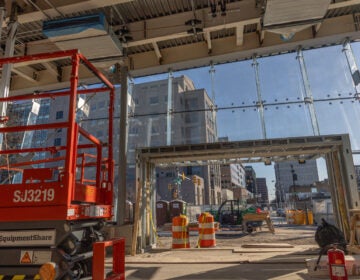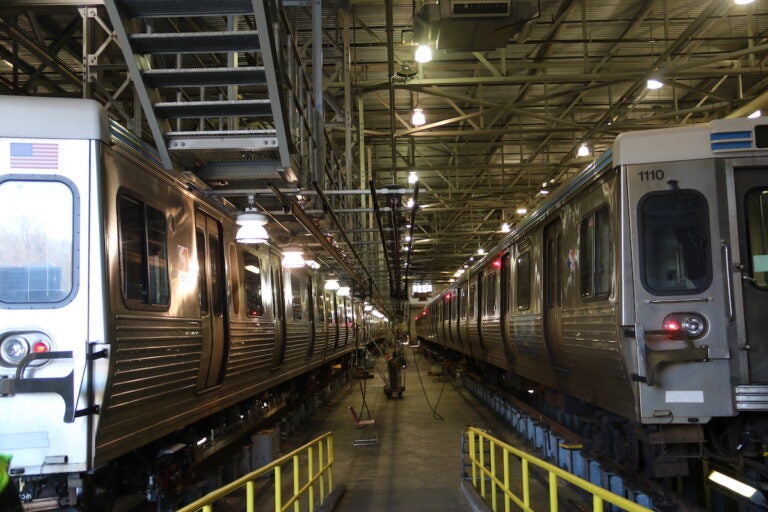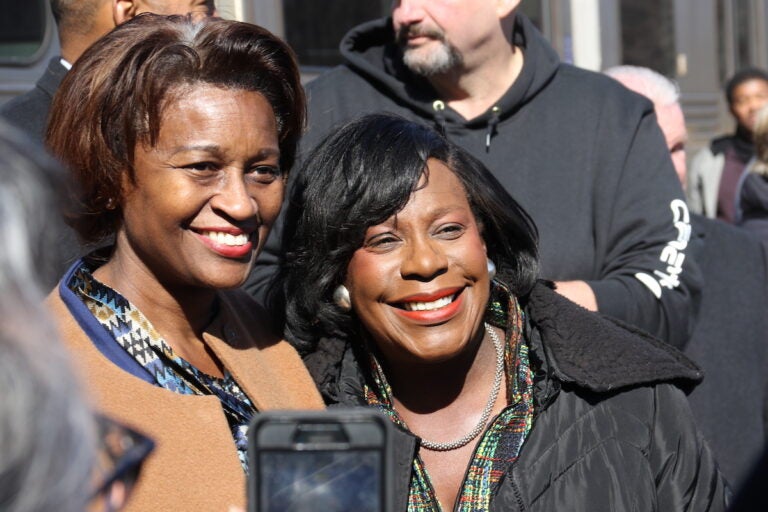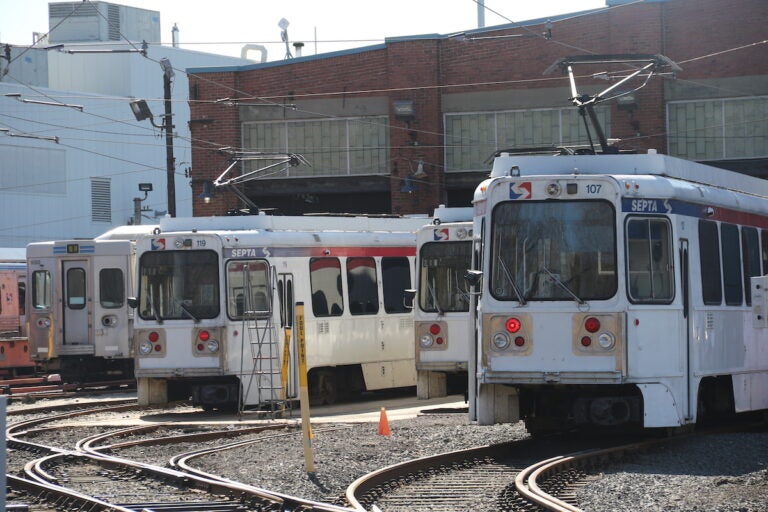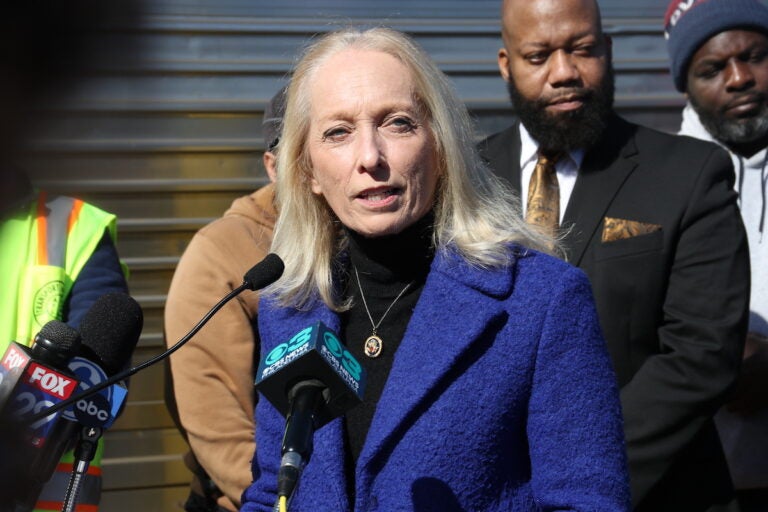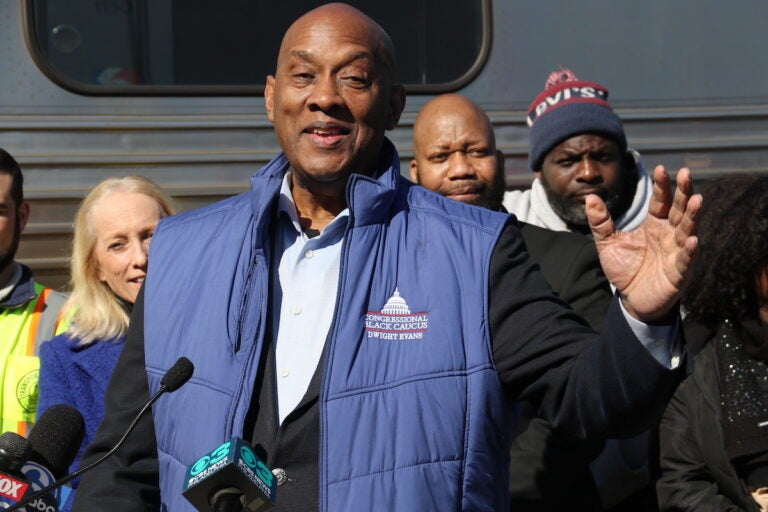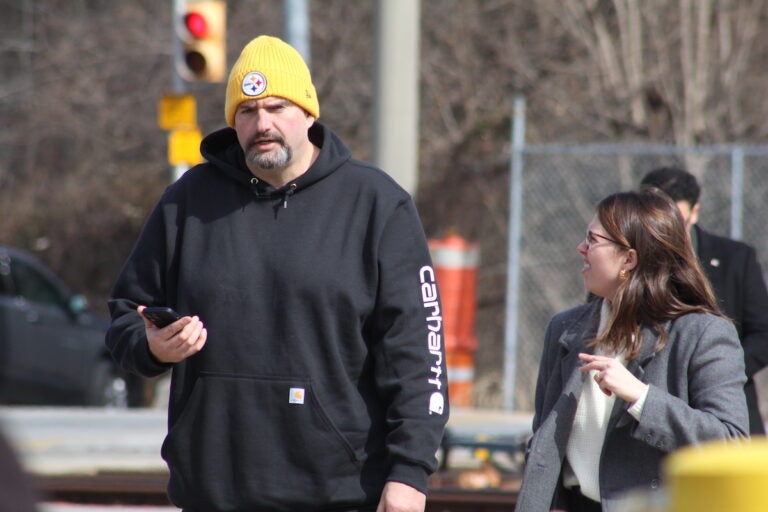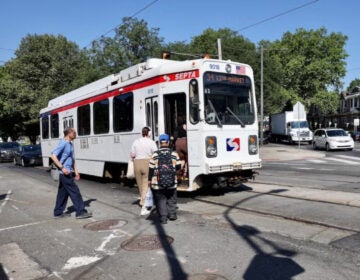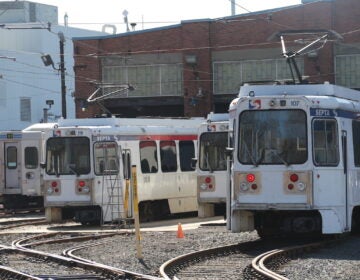‘It’s a big deal’: Largest federal grant awarded to SEPTA will help replace the aging Market-Frankford Line fleet
SEPTA’s CEO said the rail cars, which have been around since the late ‘90s, have “reached the end of their useful life” and that “commuters deserve better.”
Listen 1:21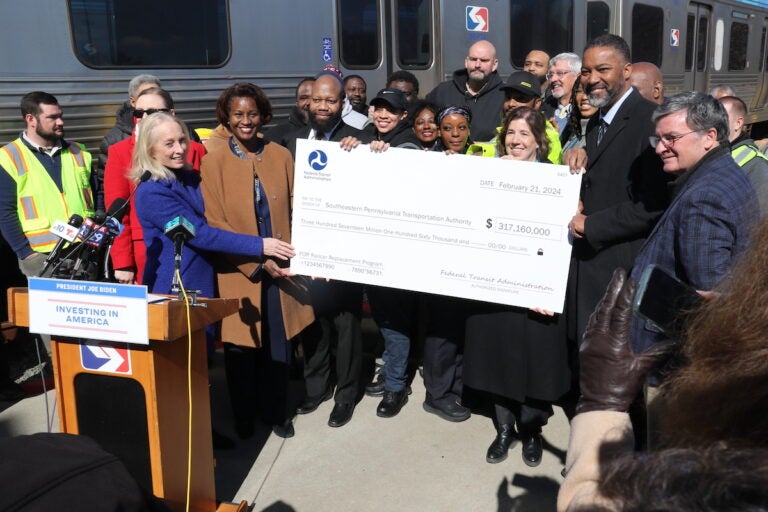
Federal, local, and transit officials celebrated the $317 million grant at the 69th Street Transportation Center in Upper Darby on Feb. 21, 2024. (Cory Sharber/WHYY)
From Philly and the Pa. suburbs to South Jersey and Delaware, what would you like WHYY News to cover? Let us know!
Federal and local leaders celebrated what they touted as the largest federal grant ever awarded to SEPTA, allowing Philadelphia’s transit agency to purchase 200 new rail cars for the Market-Frankford Line.
The $317 million endowment is from the U.S. Department of Transportation and the Federal Transit Administration’s Rail Vehicle Replacement Program.
The current rail cars on “the El” have been transporting millions of people across Philadelphia since the late 1990s. SEPTA’S CEO and General Manager Leslie Richards said they’ve “reached the end of their useful life.”
“They’re tired and they’re increasingly prone to mechanical failure and system delays,” Richards said during a news conference at 69th Street Transportation Center in Upper Darby on Wednesday. “SEPTA commuters deserve better.”
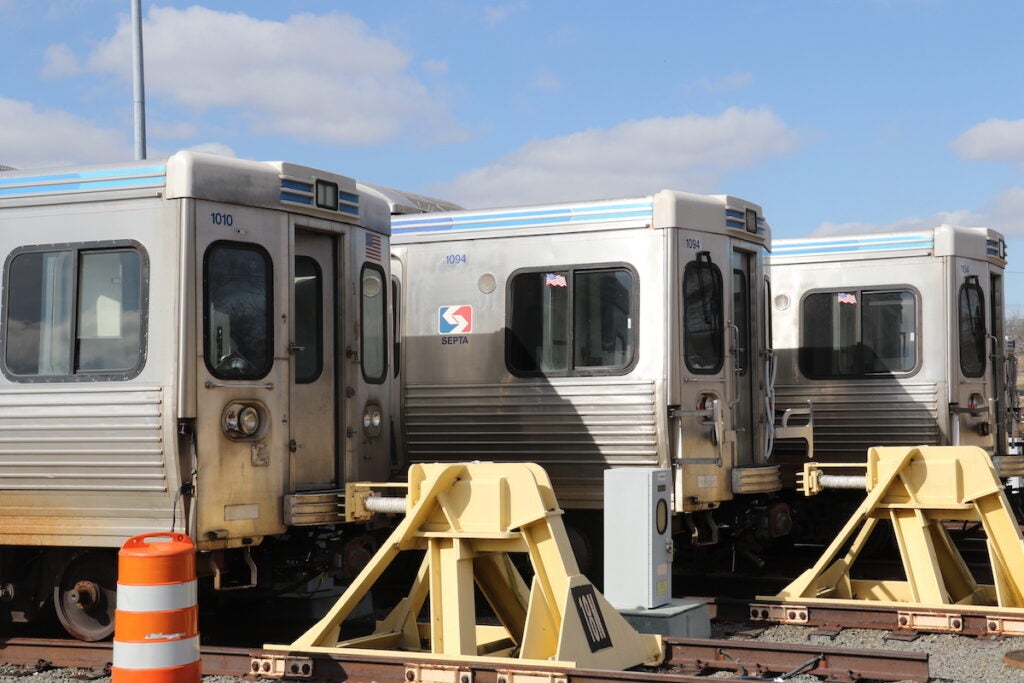
Richards said SEPTA is currently evaluating proposals for replacement vehicles and a contract will be awarded this summer. The total cost of purchasing the rail cars will be around $800 million. She said the grant will be “helpful in getting us to the full number that we need.”
In addition to being the largest grant awarded to SEPTA, it’s also the largest allotment made through the federal program, exceeding the previous record of $200 million for the Chicago Transit Authority. Previously, the largest grant SEPTA had ever received was $96 million in 2022 through an American Rescue Act program.
U.S. Senator John Fetterman said he drove from the Pittsburgh region for Wednesday’s presentation simply because “it’s a big deal.”
“This is a big deal for SEPTA,” Fetterman said. “It’s a big deal for Philadelphia and this region. And it’s a big deal for anyone that uses this kind of rail … It’s an investment in infrastructure that matters and can change lives.”
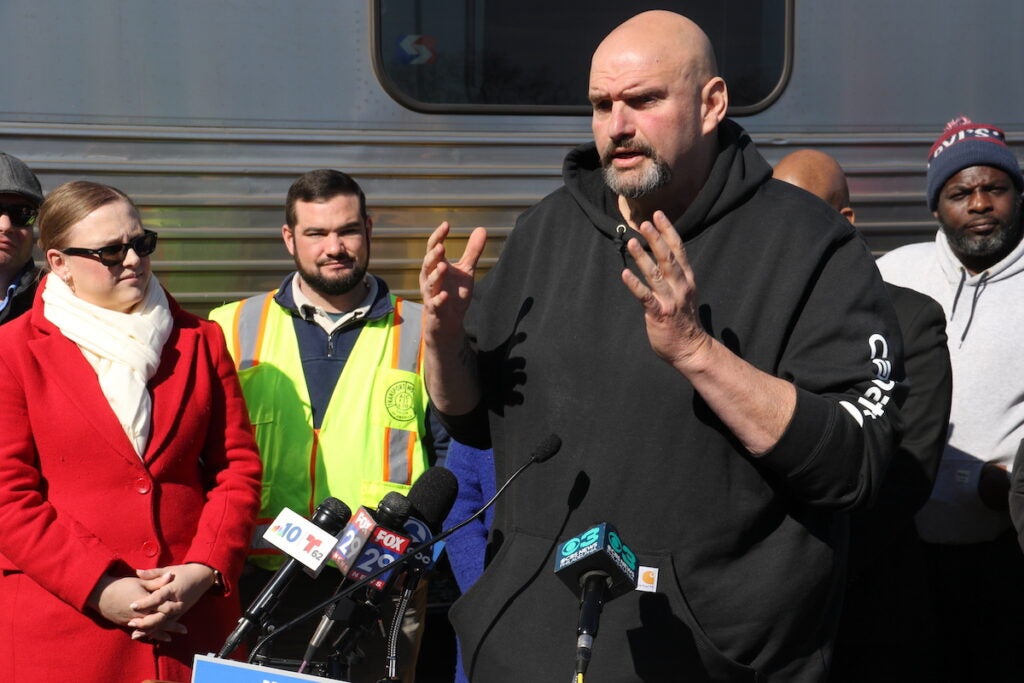
Mayor Cherelle Parker echoed Fetterman’s sentiments.
“This investment says that we see you,” Parker said. “It says that the people for whom this mass transit system is essential for them to get to and from work to school and wherever they are commuting to, that you deserve to be on a safe and clean mass transit system and this will make it a reality.”
Parker also called for Philadelphians to be “good stewards” when the new rail cars come in.
“If we get the new rail cars, and people are still afraid to ride, it’s been for naught. We’ve got to make the tough decisions to ensure this investment is put to good use,” Parker said. “I’m so looking forward to working with SEPTA… all of us working together to ensure that we have a first-class modern mass transit system.”
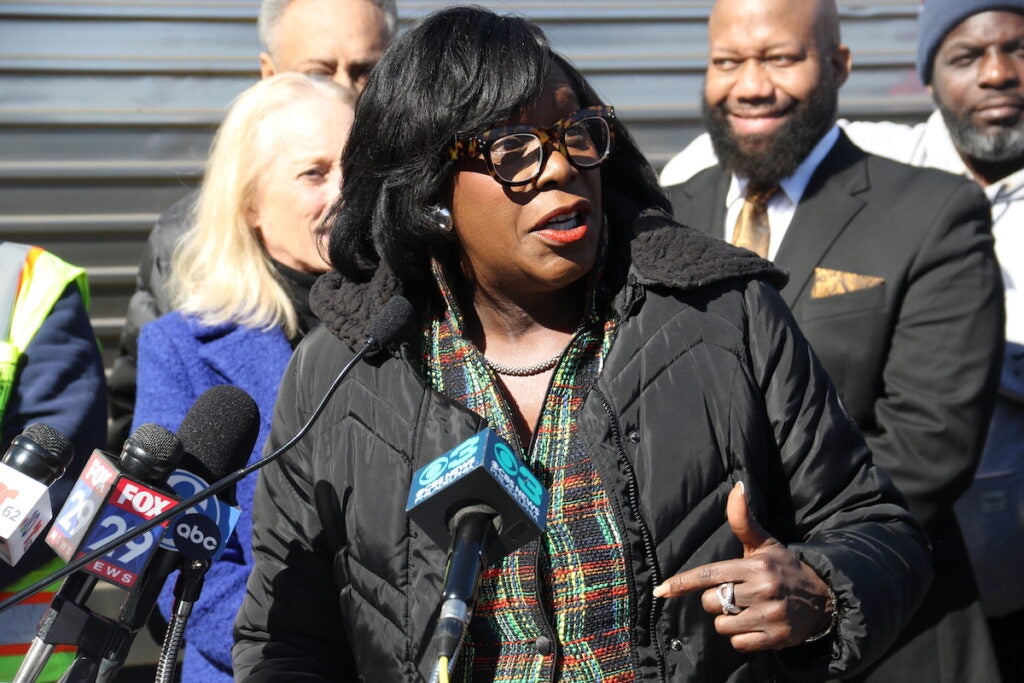
FTA Administrator Nuria Fernandez rode the El to Upper Darby and described her trip as “quick” and “efficient.” She said with the new investment, about 175,000 daily riders will get “better and more reliable service.”
“This investment really demonstrates the agency’s commitment to improving everything that transit should be: Safe, fast, frequent, reliable and accessible,” said Fernandez.
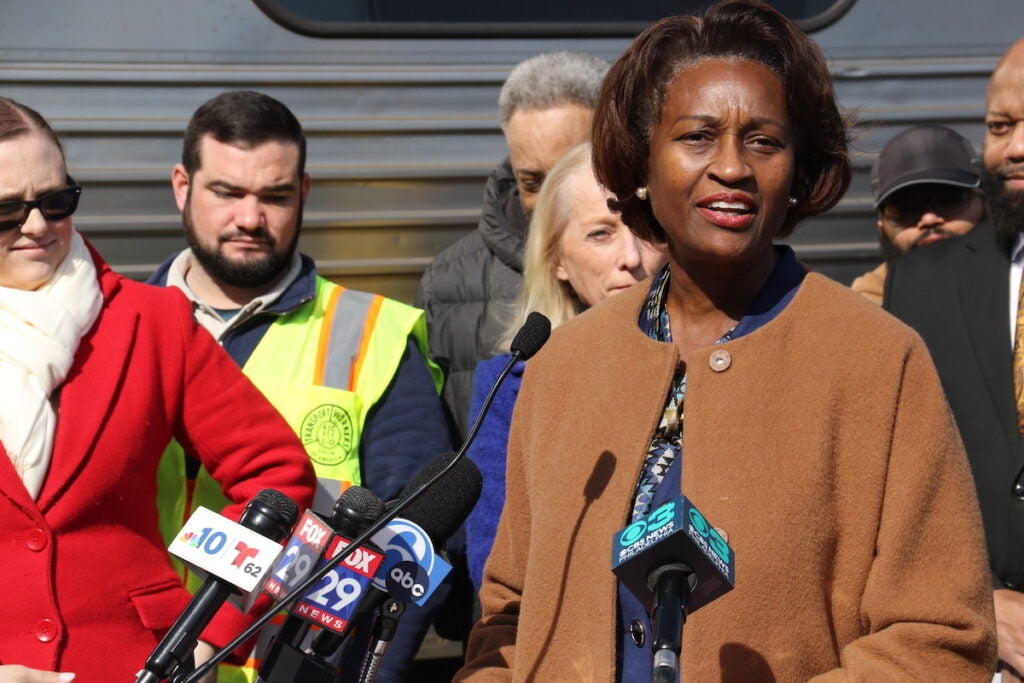
“This is a win-win all around for everyone who writes SEPTA and for those who operate and maintain it,” she said.
SEPTA is facing a budget shortfall when pandemic funds expire in July. Gov. Josh Shapiro introduced a plan to increase public transit funding across the state by 1.75%, which would generate nearly $1.5 billion over five years.
When discussing the budget proposal with WHYY News, Richards said “it’s not a given” it will make it past the finish line given a similar proposal did not make it into the state budget signed by Shapiro in December.
“That’s why we’re working so hard,” Richards said. “I was just in Harrisburg yesterday. I’ll be up there many times before this budget gets voted on. As everyone knows, you can be part of the discussion until one day, you’re not part of that discussion.”
We’re emphasizing the fact that SEPTA is a big business,” Richards said. “We are the size of Aramark or CVS in the commonwealth and legislators would not want a business like that right to not function well or to close shop, or even to decrease their presence.”
Shapiro has faced calls from local communities and federal lawmakers to increase SEPTA’s funding as it faces a $240 million shortfall. If the transit agency can’t secure that funding, service could be cut by 20% and fares could increase by as much as 30% this fall.
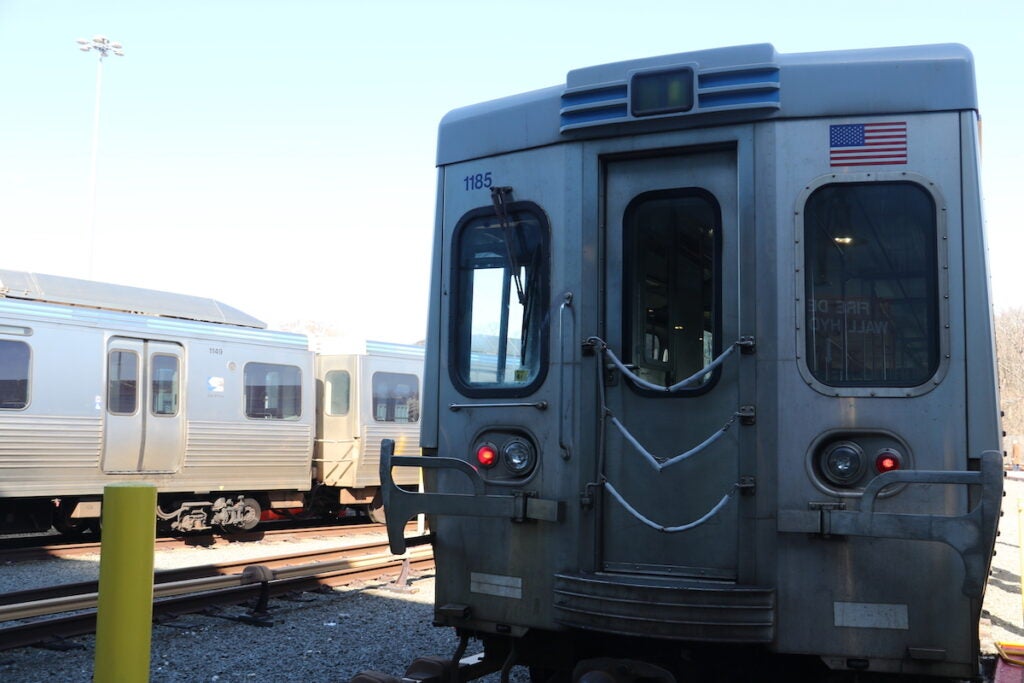
In January, U.S. Sens. Fetterman, Bob Casey and multiple congressional leaders in the Philly metro area sent a letter to Transportation Secretary Pete Buttigieg urging more funds for SEPTA.
Last June, SEPTA received $80 million to support upgrades to its bus facilities from the FTA. Last February, SEPTA awarded a contract of over $700 million to replace its aging trolley fleet.
On Wednesday, the FTA announced $631 million in grants to improve rail transit safety and reliability. In addition to what SEPTA received, METRA in Chicago will receive $100 million and MDOT MTA in Baltimore will receive $214 million.

Get daily updates from WHYY News!
WHYY is your source for fact-based, in-depth journalism and information. As a nonprofit organization, we rely on financial support from readers like you. Please give today.



